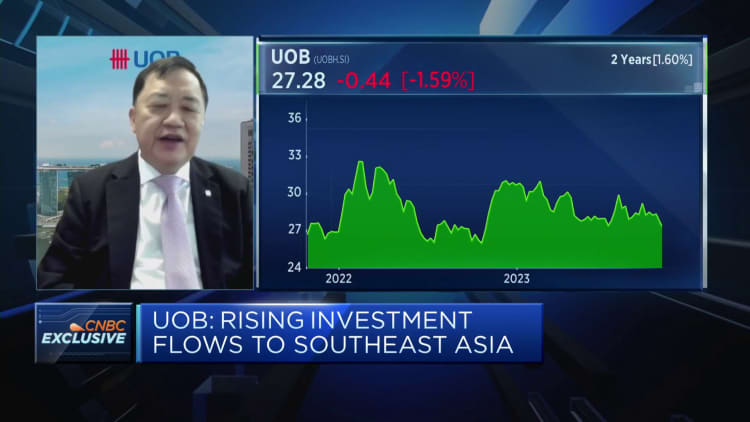
Commercial real estate markets in the U.S. and China are economic pain points to monitor in a higher-for-longer rate environment, said Singapore's United Overseas Bank. But the bank remains optimistic about one key region.
"The U.S. commercial real estate remains a hotspot, especially with the low occupancy rates that we have," Lee Wai Fai, chief financial officer of UOB told CNBC's "Street Signs Asia."
Vacancy rates for office buildings climbed to a record high of 18.2% in late 2022.
"The other hotspots will be China, there [are] worries about the quality and whether they can manage the property uncertainty in China," he added.
China's property market has struggled with faltering consumer confidence as major developers like Evergrande and Country Garden remain mired in debt problems.
Lee added the world is heading into a more "uncertain environment" and the impact of higher-for-longer interest rates is starting to filter through the economy.
The world's central banks have hiked interest rates aggressively over the past 18 months or so in a bid to rein in soaring inflation, with varying degrees of success.
"China recovery has yet to come about. And of course, the recent geopolitical tension has added to the volatility," he added.
ASEAN's resilience
That being said, in spite of a bumpy macroeconomic environment, Lee expects the ASEAN region to remain resilient, citing investment flows particularly in new economy areas such as sustainability.
"But [for] our regional fundamentals, we are confident, because we still have low unemployment and robust consumption," he said, adding that supply chains are also shifting into Southeast Asia.
Foreign direct investment flows to Southeast Asia have "increased by a factor of nine over the last two decades, with over half of these going to Singapore," philanthropic organization Hinrich Foundation noted in a February report.
UOB on Thursday posted a core net profit of $1.5 billion for the third quarter of financial year 2023 ending Sept. 30, rising 5% from a year ago.


